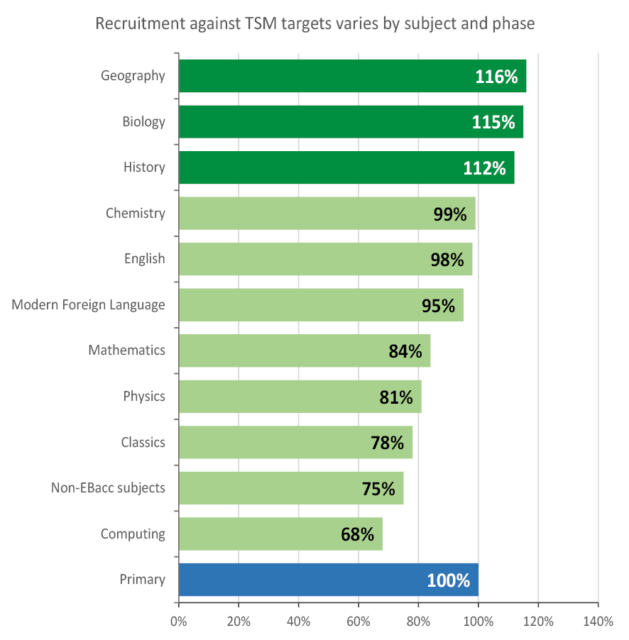The education select committee has published its teacher retention and recruitment inquiry today.
The report gives a number of recommendations for improving recruitment, particularly across hard-pressed subjects and regions, and for ensuring retention in the face of workload and policy pressures.
Schools Week has the 6 key findings:
1. The government should give at least a year’s lead-in for new initiatives
Inspection and policy changes are the key drivers for increased workload, the report found, urging the government to “recognise the importance of stability” when it came to policy changes.
Ministers should also give schools plenty of warning. “The current protocol of a year’s notice should be adhered to at the very minimum, but more effort should be made to give longer lead-in time for future policy changes.”
2. The impact of bursaries in under-recruiting subjects is not clear
Bursaries such as £30,000 for a physics graduate with a first-class degree is a step in the right direction, the report found, but “the government has yet to produce its evidence on the long-term positive impacts of these bursaries”.
That was one of the findings of the National Audit Office’s teacher recruitment report, published last year. It stated the DfE had handed out £620 million on bursaries in five years – without knowing whether it aids recruitment
But the government has started to investigate and is due to publish research on the impact of bursaries in April 2018.

3. The government doesn’t collect retention data by region and subject – but it needs to
No data is currently being collected on teacher retention rates by region or subject, even though there is evidence some regions and subjects are struggling more than others.
This is preventing the government from “fully understanding the problem”, and also from setting regional targets rather than just national targets for the Teacher Supply Model, the report found.
The regional issue was mentioned in the Education Excellence Everywhere white paper, but as the report notes on more than one occasion, no one is certain whether those proposed polices are set to be rolled out under the new government.
MPs concluded they were “unclear whether the government has a systematic, long-term plan for how to encourage more teachers into areas where there is highest need.”
4. Ofsted inspections should focus on CPD
Many schools would like to be more committed to CPD but simply cannot spare their teachers for time out of the classroom, said the report.
“Losing class time with high stakes exam classes is not permitted and funding is not available to support attendance to training events”, the Mathematical Association told the committee.
Ofsted should check that schools are helping staff to access high-quality, subject-specific CPD. Ofsted should also monitor workload of staff, said the report.
Teachers should use the College of Teaching to demand high-quality CPD and improved workloads too, it added, something that would keep teachers in the classroom.
5. CPD focus would also boost average age of England’s young workforce
More teachers remaining in post would also increase the relatively small proportion in the country with more than 10 years’ experience, noted the report.
In other countries, 64 per cent of secondary school teachers have over a decade’s experience on average.
But that figure is just 48 per cent among English teachers, leading to a dearth of experience at leadership level, the report stated.
6. National teacher vacancy website would reduce recruitment crisis costs
The white paper also promised a free, centralised vacancy website that would reduce advertising costs for schools and be a useful data source.
But the report stated “it is unclear whether iniativies from the 2016 white paper will still be adoped”, urging minister to keep this proposal on the table.








I really don’t think that more Ofsted monitoring is one of the answers to teacher workload (finding 4). Much of what some schools are asking teachers to do (triple marking etc) arises out of a school’s SLT thinking that this is what Ofsted want to see – and this is partly driving recruitment and retention problems.
‘Workload is inextricably linked to the accountability agenda’. That’s what Dame Alison Peacock told the Select Committee. The Committee found that teacher workload was driving teachers from the classroom. http://www.localschoolsnetwork.org.uk/2017/02/teacher-shortage-is-a-major-challenge-say-mps-crisis-would-be-a-better-word